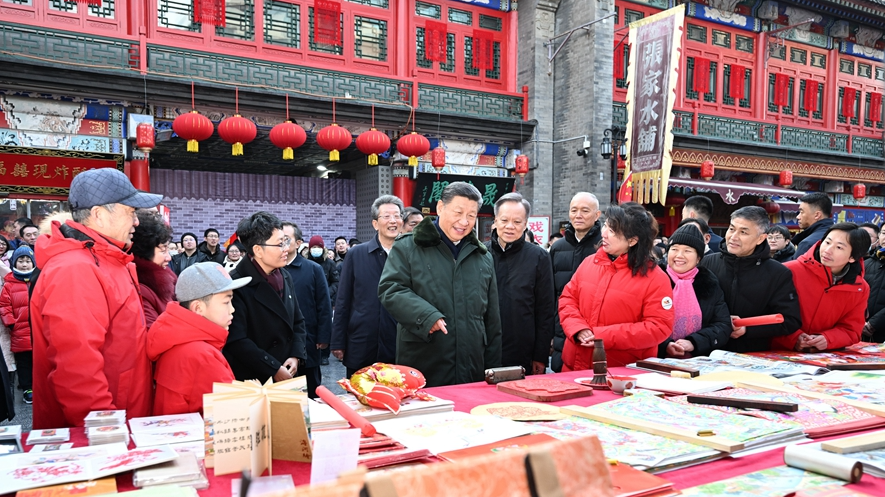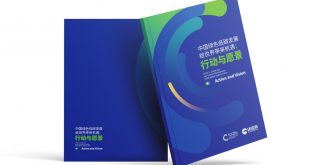Published: February 18,2024

Chinese President Xi Jinping, also general secretary of the Communist Party of China Central Committee, visits people in the northern city of Tianjin ahead of the Spring Festival, February 1, 2024. /Xinhua
“Whole-process people’s democracy is the defining feature of socialist democracy; it is democracy in its broadest, most genuine, and most effective form,” Chinese President Xi Jinping, also general secretary of the Communist Party of China Central Committee, wrote in an article published on Friday.
His key statements about China’s system of people’s congresses and whole-process people’s democracy, which were published in the Qiushi Journal, emphasized the importance of ensuring the Chinese people run the country.
What is whole-process people’s democracy? How does China’s democratic system work? Zhang Tianneng’sstory may help to explain.
As one of more than 2,000 deputies to the National People’s Congress (NPC), China’s national legislature, Zhang, also the chairman of a leading renewable energy enterprise, has been closely watching the development of green energy, carbon emissions and climate change for decades. Over the past 10 years, Zhang has submitted over 200 related suggestions and proposals to the NPC.
During last year’s NPC annual plenary meetings, after comprehensive research and based on years of experience, Zhang submitted four proposals on amending the Environmental Protection Law and making climate change laws, as well as 27 suggestions on optimizing the production capacity of recycled lead and enhancing the battery recycling industry and new energy storage.
Over the years, China has accelerated its high-quality development and sped up its green transformation. In September 2020, President Xi announced that China aims to have CO2 emissions peak before 2030 and achieve carbon neutrality before 2060.
Zhang’s proposals and suggestions caught the attention of the Ministry of Environment and the Standing Committee of the National People’s Congress.
A recent report by the legislative organ stated that Zhang’s proposal about making laws on addressing climate change and promoting carbon neutrality has been adopted, and it will “actively work with other departments to carry out research” and will “make it into the annual legislative work schedule when the time is right.”
China has steadily improved the institutional guarantee system of people’s democracy, and gradually developed a whole-process democracy in national governance to ensure people’s extensive political participation.
Taking the first-ever Civil Code, which took effect in January 2021, as another example. The Code was compiled over five years and views from the whole of society were solicited 10 times, with some 425,000 people providing 1,020,000 opinions.
“Whole-process people’s democracy in China not only has a complete set of institutions and procedures, but also has full-fledged civil participation,” Xi noted in the article.
Xinhua
 Africa -China Review Africa -China Cooperation and Transformation
Africa -China Review Africa -China Cooperation and Transformation
